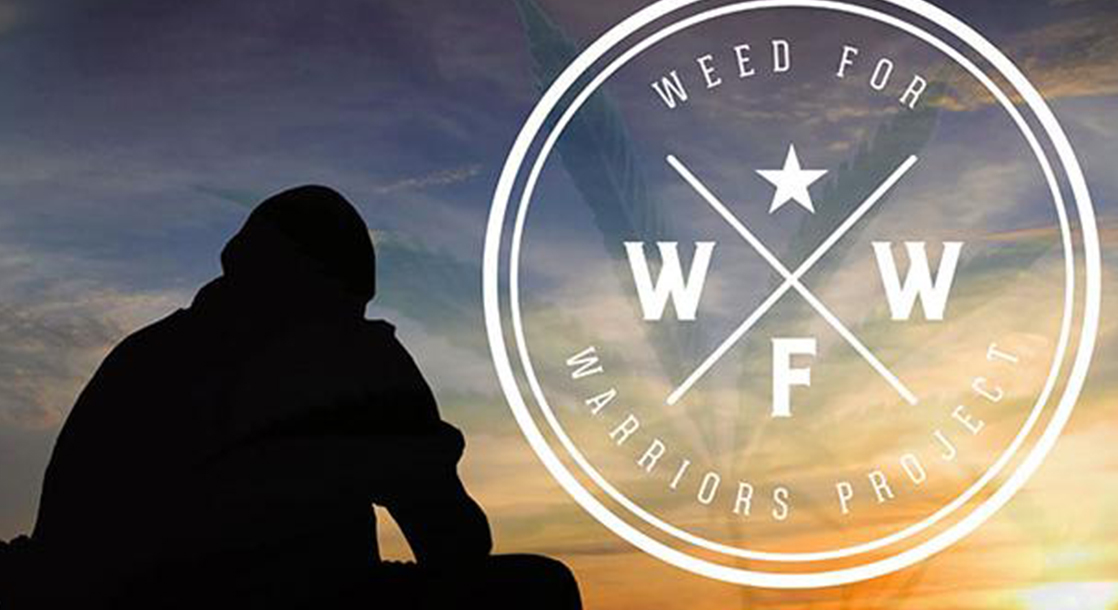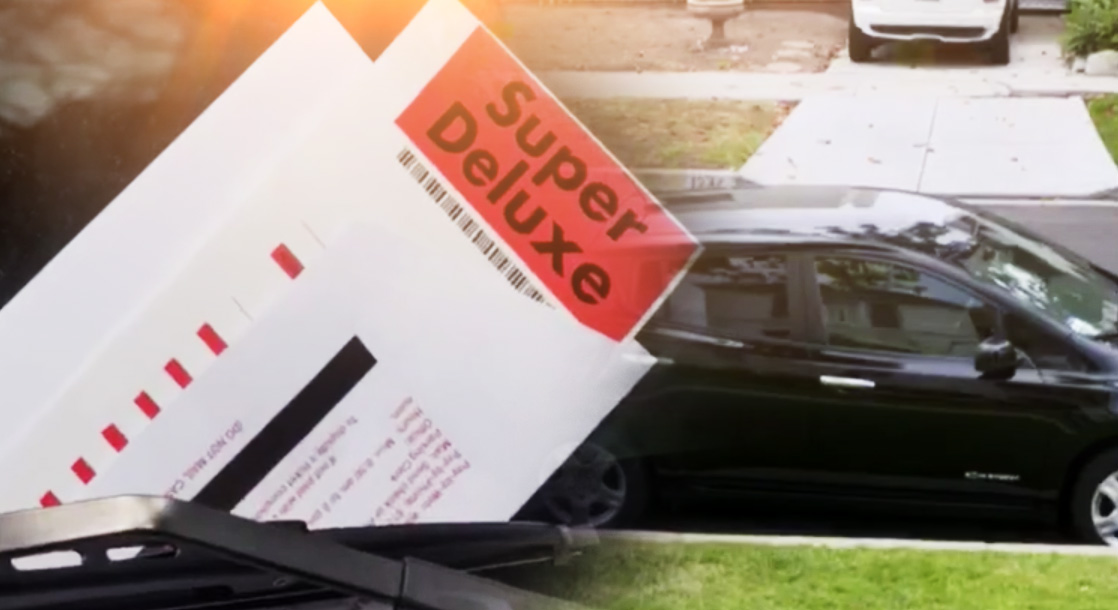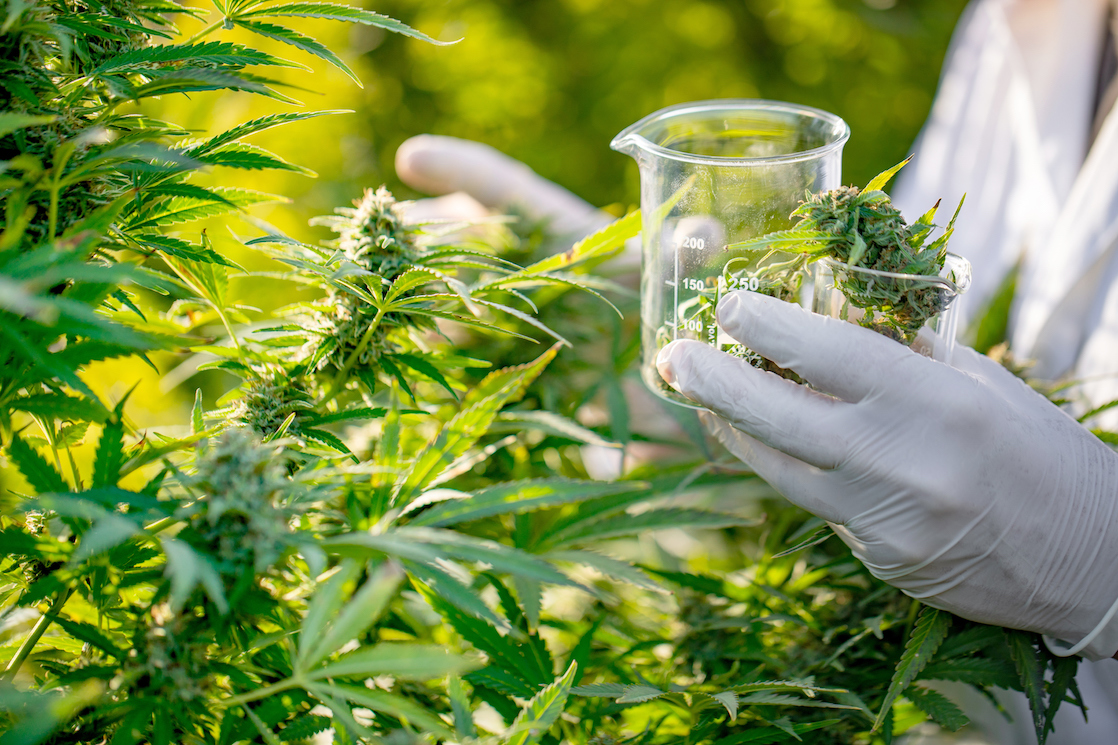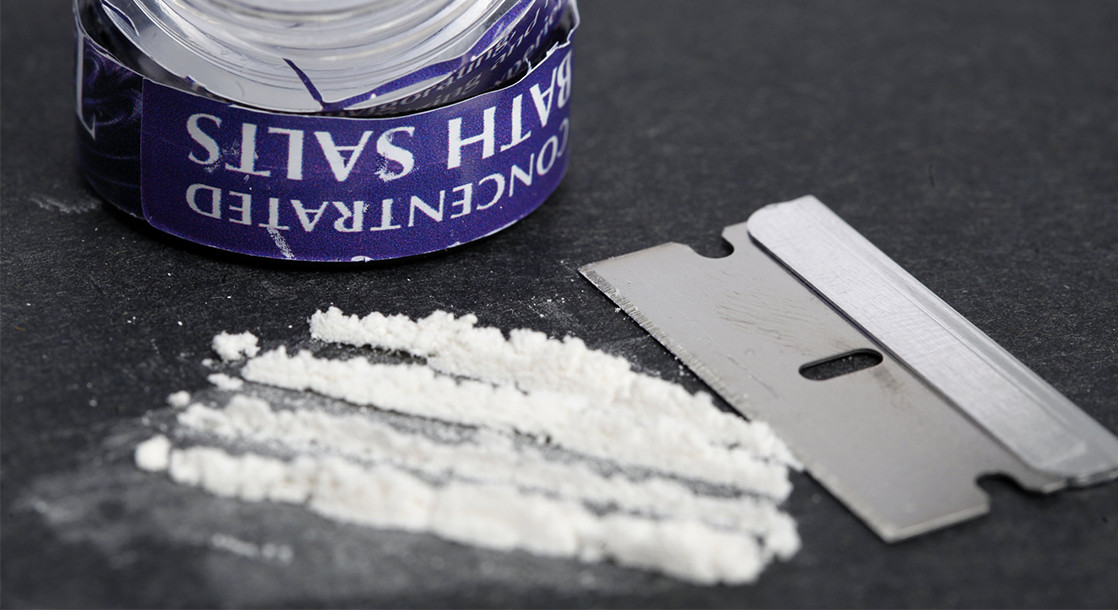Lead image via Grow for Vets' website.
News broke last week that Johns Hopkins University had quietly backed out of an FDA-approved, multi-year clinical study on the effects of using marijuana to treat PTSD in veterans.
Sean Kiernan, president of the veterans advocacy group Weed for Warriors, discovered the university had dropped out thanks to an announcement left on the Department of Psychiatry and Behavioral Science's voicemail greeting. Confused over the lack of a formal announcement from Johns Hopkins, Kiernan sent an open letter to the school’s President Ronald Daniels asking the university to explain its actions.
After years of being road blocked by the FDA and DEA, the non-profit Multidisciplinary Association for Psychedelic Studies (MAPS) secured $2 million for a clinical marijuana study from the state of Colorado in 2011. With full approval from the FDA and DEA, John Hopkins was slated to begin the MAPS study in January 2017 alongside Scottsdale Research Institute in Phoenix, Arizona.
In an email to MERRY JANE, lead researcher for the John Hopkins site Associate Professor Dr. Ryan Vandrey wrote, “Johns Hopkins elected to withdraw from the MAPS study of cannabis in veterans with PTSD prior to any participant enrollment because our goals for this study weren’t in alignment.”
Echoing Vandrey’s sentiment, MAPS PR office stated John Hopkins’ dropped due to a difference in goals: “Johns Hopkins wanted to remain focused on clinical research, and MAPS wanted to focus on the science as well as on the policy issues surrounding the science related to the [National Institute of Drug Abuse] monopoly on marijuana for research.”
MAPS also noted that the Johns Hopkins drop does not doom the study, noting it will continue at the Scottsdale site, as well at the University of Colorado and University of Pennsylvania.
Kiernan remains unconvinced of the diplomatic reasons given by MAPS and John Hopkins, though. A long-time friend of Suzzane A. Sisley, the clinical assistant professor who was abruptly fired by the University of Arizona in 2014 after initially securing funding for the study in 2011, Kiernan provided his own testimony as a veteran with PTSD. He even joined her on the press circuit following her dismissal.
His devotion to marijuana as a medicine is personal. After losing his Wall Street job in 2006, Kiernan began exhibiting signs of depression. He eventually went to a doctor complaining of mental health problems, and, without mentioning his stint in the air force from 1988-93, the doctor misdiagnosed Kiernan with bipolar disorder. It wasn’t until later, when his health insurance had run out and Kiernan went to the the Veteran’s Association to apply for a card, did he realize he might have PTSD. To learn more about Weed for Warriors, as well as how Johns Hopkins' decision to stop the PTSD study could affect vets, MERRY JANE spoke with Kiernan to discuss the study's cancellation.
This interview has been edited for length and clarity.

The Weed for Warriors logo via
Merry Jane: How did you end up joining the advocacy group Weed for Warriors?
Sean Kiernan: I’ll go into my history and then I’ll dovetail. I was in the airborne infantry from 1989-93, mostly in Central and South America… which was an interesting time. And when I got out, I got a degree and eventually started working on Wall Street. But around 2006, I started having issues. My wife said you need to see a doctor. I went to see the doctor and was given this questionnaire. Do you have mood swings? Yes. Do you ever experience anger? Yes. Are you depressed? Yes. I was diagnosed with bipolar [disorder] and they started to put me on medicine — lithium, depakote, etc…
I was like, what the hell’s going on? So I spiralled and started to self-medicate with ketamine. Then, I had a suicide attempt in 2011. After that, my friends were trying to ween me off everything and said why don’t you use cannabis instead? And it worked. It started to work. It wasn’t a straight line. I’d be doing good for two months, then fall off the wagon, then get back on.
I was spiralling out of control in 2013. I had my insurance cancelled in 2014. BlueCross sent me a letter after I moved from New York to California: Hey, you moved states. You have to reapply. I reapply, but because of the suicide, [I couldn’t receive new health insurance]. I had a pre-existing condition.
So you went to a Veterans Affairs office in California to get health insurance, and what happened?
At the time, I hadn’t been back to a military base in years. I totally put it out of my mind. So in April 2013, when I went to the VA, it started to bring back memories. I met other people there. These guys were from Iraq and Afghanistan. It opened my eyes to what was going on. And I talked to my psychiatrist and realized I had PTSD. But what really depressed me was how overmedicated everyone else I met up with at the VA was.
How do you link up with Weed for Warriors?
I met Kevin Richardson, the founder of Weed for Warriors, and we hit it off. [At the time], I was providing testimony and press stories to help Dr. Sue Sisley get funding. When we got the public funding from Colorado in 2011 to help her study, I decided to help [Richardson] out. Soon, he left the VA and I said I’ll take over.
What’s your role at Weed for Warriors and what does the group do?
I run the national chapter and my partner runs the local chapters. The chapters meet once a month. It’s taking off. Sacramento has a 160 vets coming to meetings. A lot of times when you’re depressed, you need someone to talk to. So it’s a therapy network. We’ve partnered with growers and extractors in California, and they donate [medical marijuana] to us. So we get those meds to these vets, free of charge.
What inspired you to write the letter to Johns Hopkins?
My relationship with Dr. Sisley still stands. When I started getting calls last week saying something's on the voicemail at Johns Hopkins, I thought, That doesn’t make sense… And that’s when I wrote the letter on Monday to President Daniels saying: Hey! You guys have backed out of this study. Per your own voice mail. There’s no official announcement. Last month you got Paul Ryan calling vets to engage. The vets are calling in and what are they hearing? "Sorry, we’re not here to help you." We got a lot of negative reactions to the veteran community and no one’s here to help them, so we’re asking for answers.
In your mind, why did Johns Hopkins drop the study?
We believe and I believe that they dropped this study for other reasons than this moldy weed they’re trying to claim. Johns Hopkins has done a lot of cannabis studies, mainly because they’re paid by the National Institute on Drug Abuse (NIDA). So if you look at Johns Hopkins’ website… it’s NIDA central. Problem is there’s a fundamental conflict of interest with these research studies, since a lot of them get paid by pharmaceutical companies. Pharmaceutical companies don’t want this thing to succeed. And what you see now is them saying marijuana may be helpful but it’s not medicine. These people say medicine doesn’t grow in your yard from seeds. My belief and my accusation is that Johns Hopkins really had no interest in doing this study. If you look at it, they’ve had it [funded] for years. They didn’t enroll anyone. And now they drop out because of this convenient excuse? A lot of people don’t want the study. These things are landmines. They block it. We overcome it.
Phoenix is still committed to doing the study, so what makes Johns Hopkins’ dropping out so significant to you?
Johns Hopkins told MAPS they’re backing out of the study a couple weeks ago without any regard for if the study continues. Now, we have to fill out new applications for institutional review boards (IRBs). By doing what they did, Johns Hopkins makes [starting] the study impossible. Since 2011, we’ve lost thousands of veterans due to suicide and opioid overdoses. Suicide and opioid overdoses are down in states with access to marijuana. And I’m talking real access like Colorado and California. There’s no incentive to stop the war on drugs. Prisons and pharmaceutical companies make money off this. They’re fighting for their right to profit off this at the expense of dead veterans [who could benefit from medical marijuana]. They’re making money by pushing pills. Veterans go in [to see a civilian doctor] and they end up with different diagnoses than what they actually have.
When you smoke weed, what does it do for you?
It allows me to integrate. There’s an isolation effect for PTSD because you can’t handle the stimuli. You isolate yourself, and other people isolate you too because your behavior is weird. People are like, what the hell’s wrong with this guy? I don’t want to be around him. What marijuana allows these vets to do is relax. We’re not saying pills are bad. There are a lot of people being helped by pills. But if you look at the bell curve, the tail ends aren’t being helped. And suicide and depression are listed side-effects of these pills!
What would you like to see change with regards to veterans and medical marijuana?
Jose Martinez is a vet. He’s a triple amputee — arm blown off, leg blown… He was taking 35 pills [a day]. Oxycodone, antidepressants, mood stabilizers, ADD pills to wake up in the morning. He had 13 suicide attempts. He was shown cannabis and now that’s all he uses. It was just cannabis versus all those other pharmaceuticals. These pills are tested individually, and now you’re combing them inside a human body? You’re combining drugs with stated side effects of lethargy, suicide, depression. That’s the only option these [veterans] are given. Unless they live in a state that has legal cannabis, you’re punishing them for using an illegal drug.
For more information on Weed for Warriors, visit the advocacy group's website here.











